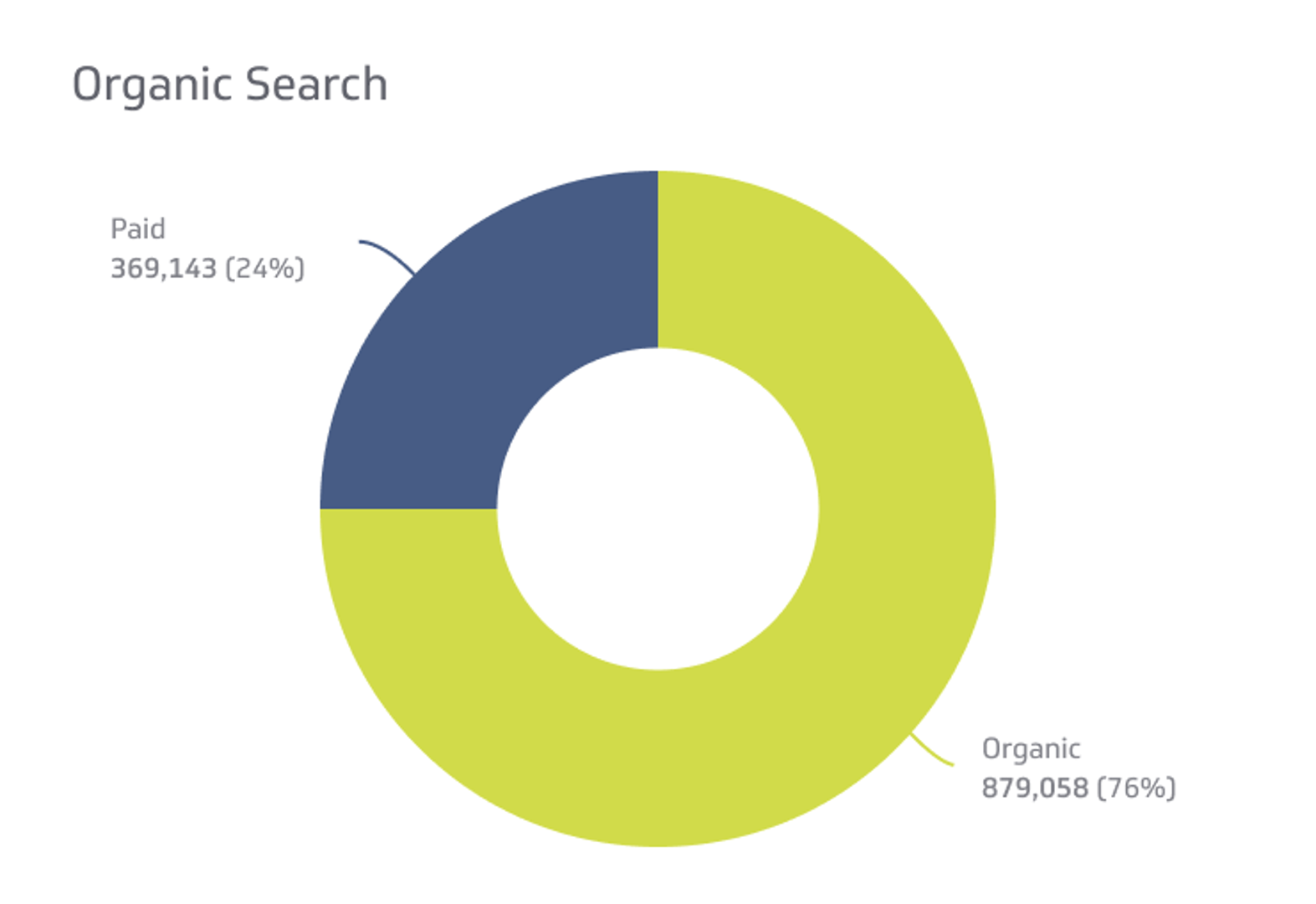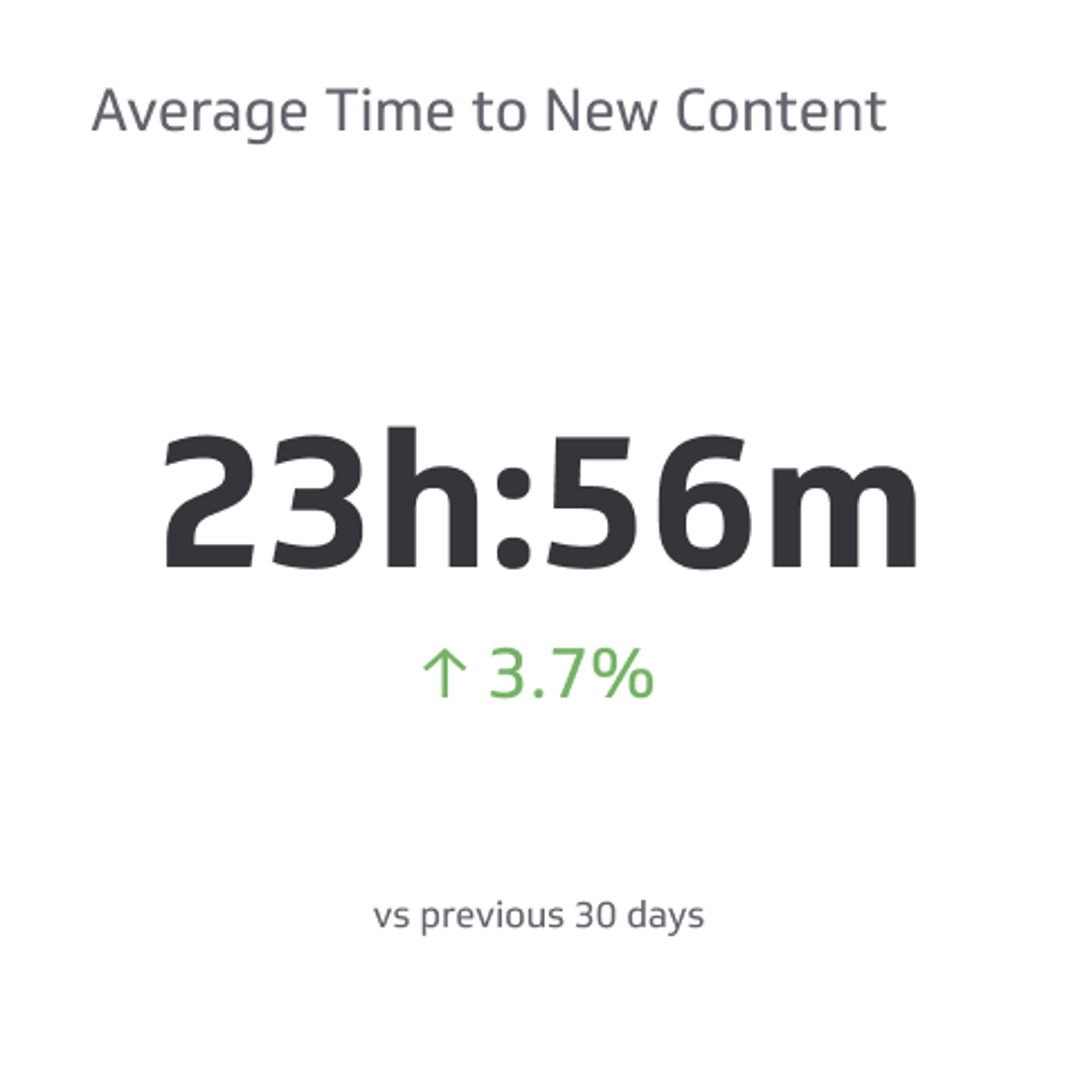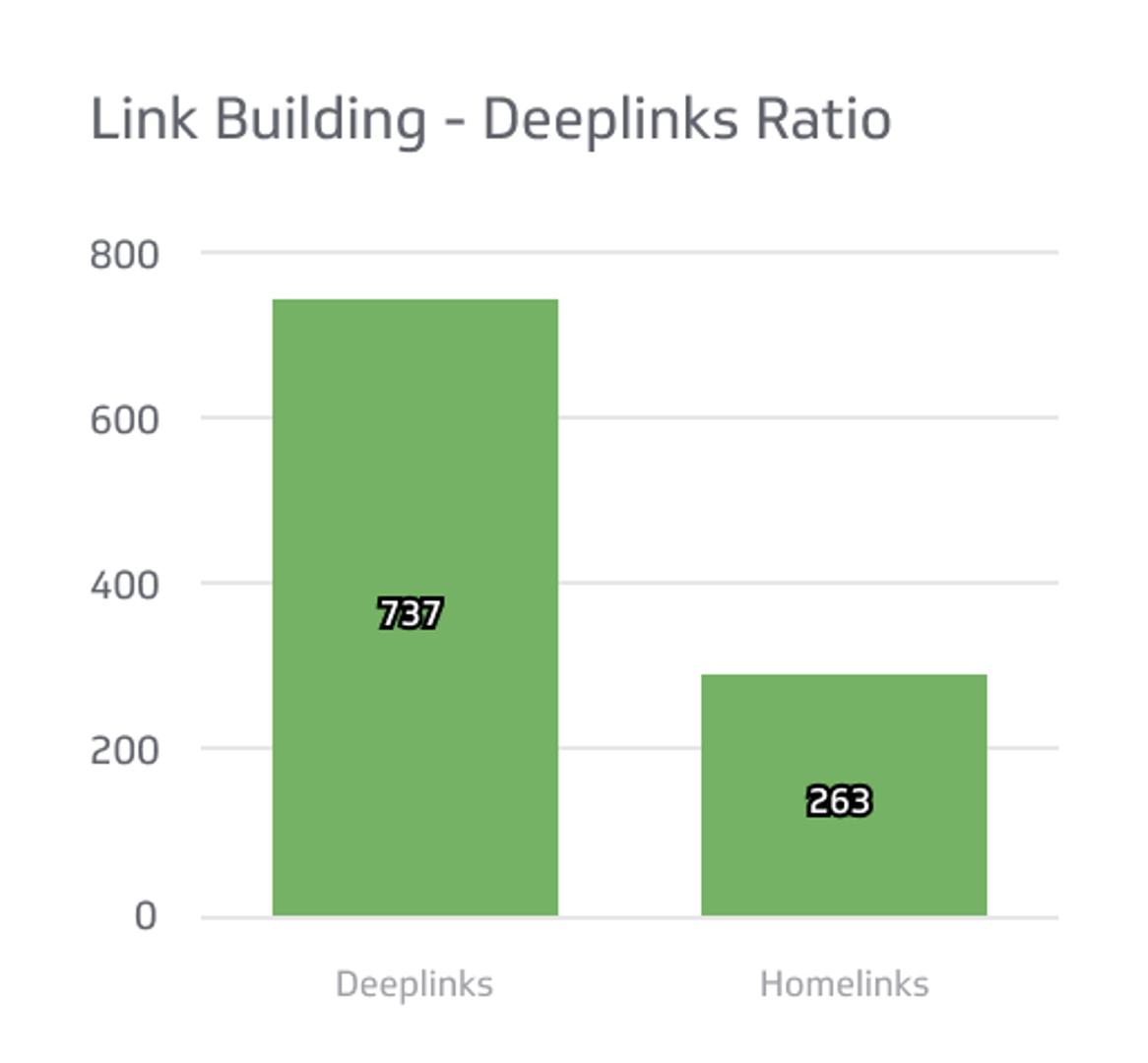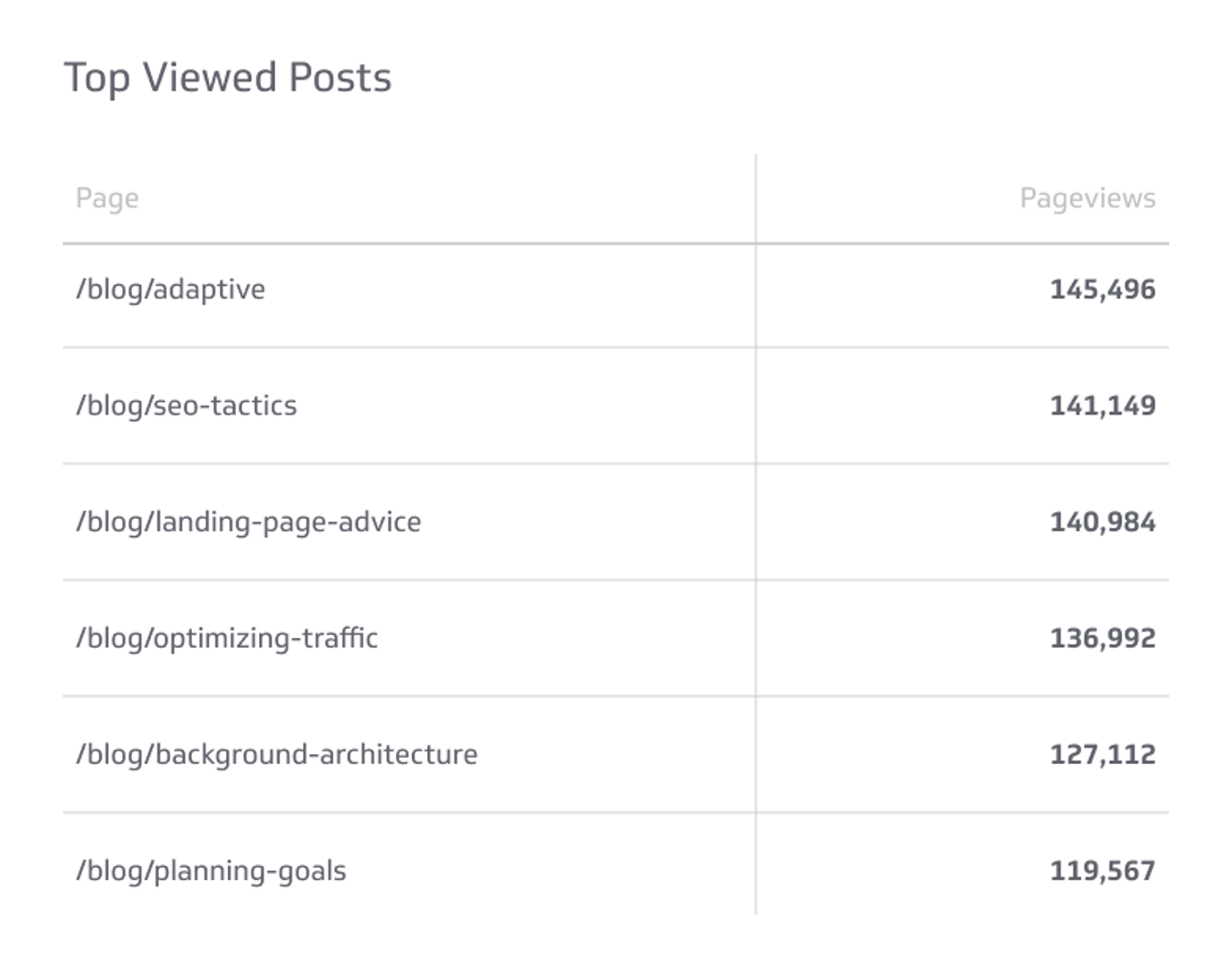Organic Search
Organic search refers to getting traffic to a website through search engine results pages (SERPs) without paying for it.
Track all your SEO KPIs in one place
Sign up for free and start making decisions for your business with confidence.

In today's digital age, organic search has become essential to any successful online business. It is the process of generating traffic to a website through unpaid search results rather than paid advertising.
This article will discuss the definition, importance, benefits, strategies, common mistakes, and future trends associated with organic search.
What is Organic Search?
Organic search refers to getting traffic to a website through search engine results pages (SERPs) without paying for it. It involves optimizing a website's content and technical elements to rank higher in search engines like Google, Bing, and Yahoo.
Organic search is an excellent way to attract high-quality traffic to your website without spending money on advertising.
How Does Organic Search Work?
Search engines make use of bots to crawl and index websites. They rank these websites based on various factors, such as relevance, content quality, and authority.
When a user enters a query that typically contains relevant keywords into a search engine, the algorithm analyses the indexed web pages and displays the most relevant results on the SERP. The goal of organic search optimization is to ensure that a website appears on the first page of search results, as this is where the majority of users click.
Here's how organic search works in more detail:
- Crawling and Indexing: Search engines use "bots" or "spiders" to crawl the web and discover web pages. These bots follow embedded links from one page to another. They then index the content of each page they find.
- Ranking: Once the pages are indexed, search engines use complex algorithms to rank them based on their relevance to a user's search query. The algorithms consider various factors such as the content of the page, the relevance of the page title and meta description to the search query, the quality of the content, the number and quality of backlinks to the page, and the overall user experience of the website.
- Displaying Results: When a user enters a search query, the search engine returns a list of results in order of relevance and quality based on the algorithm's ranking. The top results are usually the most relevant and valuable to the user's search query.
Importance of Organic Search
Organic search is essential for businesses, as it offers numerous benefits, including:
Long-term Traffic
Organic search can generate traffic to a website for months, sometimes even years, after the initial optimization is done, providing a sustainable source of traffic. BrightEdge, a marketing enterprise that specializes in SEO, says organic search drives 53.3% of website traffic, making it the most significant source.
Cost-effective
Organic search is a cost-effective way to attract traffic to a website, as it does not require ongoing advertising expenses. According to Hubspot, a CRM company, organic search leads have a 14.6% close rate, while outbound leads (such as cold-calling or direct mail) have a 1.7% close rate.
High-quality Traffic
Organic search results tend to attract more high-quality traffic than paid advertising, as users trust organic results more than paid ones. According to a survey by Moz, 70-80% of users ignore paid ads and only focus on organic search results.
Trust and Credibility
A high ranking in organic search results can enhance a website's trust and credibility, as users associate higher rankings with more authoritative websites. According to a study by Advanced Web Rankings, websites on the first page of Google receive 91.5% of total organic traffic.
Strategies for Improving Organic Search Rankings
To improve a website's organic search rankings, businesses should consider the following strategies:
Keyword Research and Optimization
Conduct thorough keyword research to identify keywords relevant to your business and your target audience. Use these keywords throughout your website's content, meta tags, and URLs. The right keywords impact search results by improving relevance, ranking, and traffic to a website. By using the most relevant keywords, website owners and content creators can increase their visibility and attract more visitors to their site.
On-page Optimization
Optimize your website's on-page elements, such as title tags, meta descriptions, and header tags, to improve its relevance and quality.
Technical Optimization
Ensure your website is technically optimized, including its loading speed, mobile responsiveness, and URL structure. According to Google, websites with a loading speed of fewer than 3 seconds have a lower bounce rate and higher user engagement.
Content Marketing
Create high-quality content that addresses the actual problems of your target audience and promotes social sharing and backlinks. According to a Hubspot study, companies that blog have 55%, and businesses that prioritize content marketing enjoy 7.8 times more website traffic than those that don't.
Link Building
Build high-quality backlinks to your website. Links should be from authoritative and relevant sources. According to a study by Moz, websites with many backlinks tend to rank higher in search engine results pages.
Local SEO
Optimize your website for local search. This could mean claiming and optimizing your Google My Business listing and ensuring your website's contact information is accurate and consistent across all online directories.
Social Media
Use social media to promote your website's content and engage with your target audience. According to a survey by Pew Research Center, 69% of American adults use social media, highlighting the importance of social media in organic search strategies.
Common Mistakes in Organic Search
While organic search offers numerous benefits, there are also some common mistakes that businesses should avoid:
- Keyword Stuffing: Excessive use of keywords in your content can result in a penalty from search engines and damage your website's reputation.
- Poor Content Quality: Low-quality content, such as duplicate or irrelevant content, can negatively impact your website's search engine rankings.
- Ignoring Technical Optimization: Neglecting technical elements like site speed and mobile responsiveness can result in a poor user experience and lower search engine rankings.
- Neglecting Social Media: Social media can be a valuable tool for promoting your content and driving traffic to your website, but it should be noticed in organic search strategies.
Future Trends in Organic Search
The world of organic search is constantly evolving, and businesses should stay up-to-date with the latest trends to stay ahead of the competition. Some of the future trends in the organic search include:
Voice Search
An increase in the number of virtual assistants and smart, like Google Home and Amazon's Alexa, has increased voice search queries. To take advantage of this trend, businesses should optimize their web content for long-tail keywords and natural language searches.
Artificial Intelligence
Artificial intelligence (AI) in search engines is becoming more prevalent, with search engines using AI to understand search intent and provide more personalized search results. Businesses should consider implementing AI-powered tools to improve their organic search rankings. For instance, an AI-powered tool can analyze a website's structure, content, and user behavior to identify areas that need improvement. It can also provide insights into the types of content that are popular with users and the keywords that are driving traffic to a website.
Featured Snippets
Featured snippets are becoming more common in search engine results pages, providing users with quick answers to their queries. Businesses should optimize their content to appear in featured snippets to increase visibility and attract high-quality traffic.
Frequently Asked Questions
How Soon Can You Expect to Get Results from Organic Search Optimization?
Seeing results from organic search optimization can vary depending on various factors, such as the competition level in your industry, the keywords you're targeting, and the quality of your content. Typically, it can take a few months to start seeing improvements in your search engine rankings. However, it's important to note that organic search optimization is an ongoing process, and it's essential to continue optimizing your website and content to maintain and improve your search engine rankings.
What is the difference between organic search and paid search?
Organic search refers to the natural search results that appear in search engine results pages based on relevance to the user's search query. These results are not paid for and are determined solely by the search engine's algorithm. Paid search refers to the sponsored results that appear at the top or bottom of search engine results pages. Advertisers pay for these results to display their ads for specific keywords.
How do search engines determine which websites rank highest in organic search results?
Complex algorithms help search engines determine the relevance and quality of websites and web pages based on a user's search query. The algorithms consider various factors, such as the website's content, backlinks, website structure, and user experience, to determine which websites and pages are most relevant and valuable to the user's search query.
Can social media presence affect organic search rankings?
While social media presence does not directly impact organic search rankings, it can indirectly affect your search engine rankings. Social media is a valuable tool for promoting your content and building backlinks to your website, which can improve your search engine rankings. Additionally, having an active social media presence can increase brand awareness and engagement, resulting in more search queries for your brand, ultimately leading to higher search engine rankings.
How Does Local SEO Affect Organic Search Results?
Local SEO means optimizing your website to appear in search results for a specific geographic area. Local SEO can significantly impact organic search results, particularly for businesses that rely on local customers. Suppose you optimize your website and its content for local search. In that case, you can boost your visibility in the results of local searches, increase the local traffic you receive, and enhance your overall search engine rankings.
Tracking the effectiveness of my organic search optimization efforts?
You can use several tools and metrics to track the effectiveness of your organic search optimization efforts. One of the most important SEO metrics is search engine rankings, which you can track using tools like Google Search Console or third-party ranking trackers. Other important metrics include website traffic, bounce rate, click-through rate, and conversion rate. By tracking these metrics, you can determine the effectiveness of your organic search optimization efforts and make data-driven decisions to improve your strategy.
Conclusion
Organic search is a crucial component of any successful online business. Optimizing your website's content and technical elements can improve your search engine rankings, attract high-quality traffic, and build trust and credibility with your target audience.
By avoiding common mistakes and implementing effective strategies, you can take advantage of the numerous benefits organic search offers. As the world of organic search continues to evolve, businesses should stay up-to-date with the latest trends to stay ahead of the competition.



